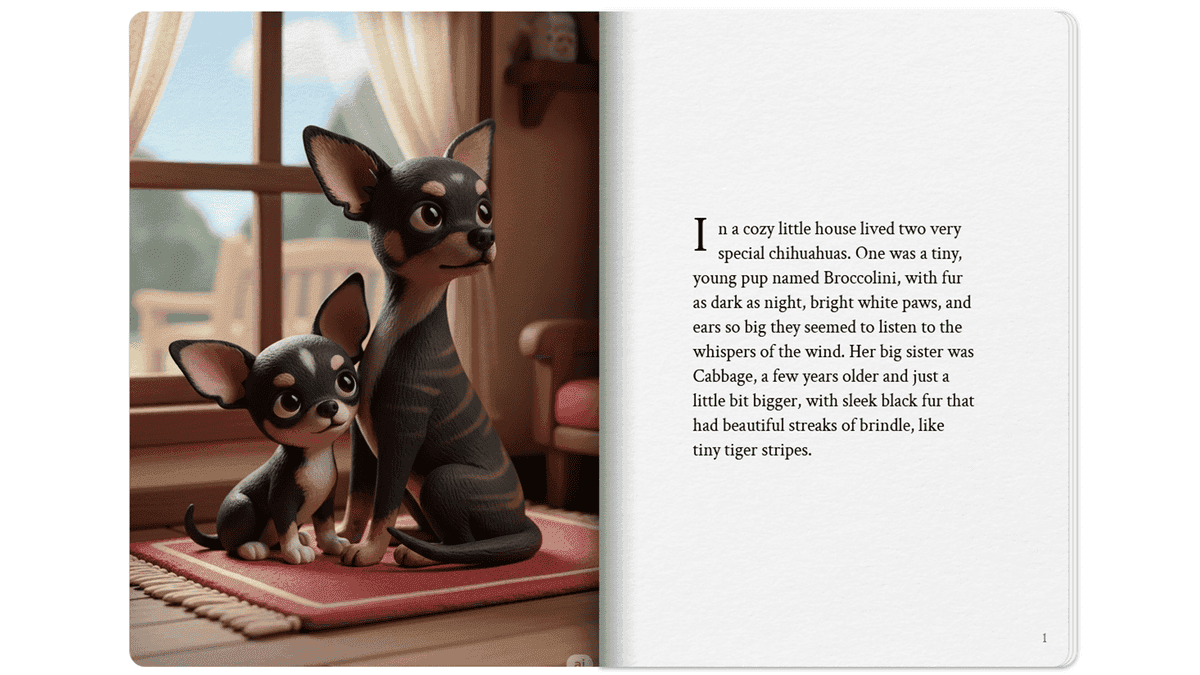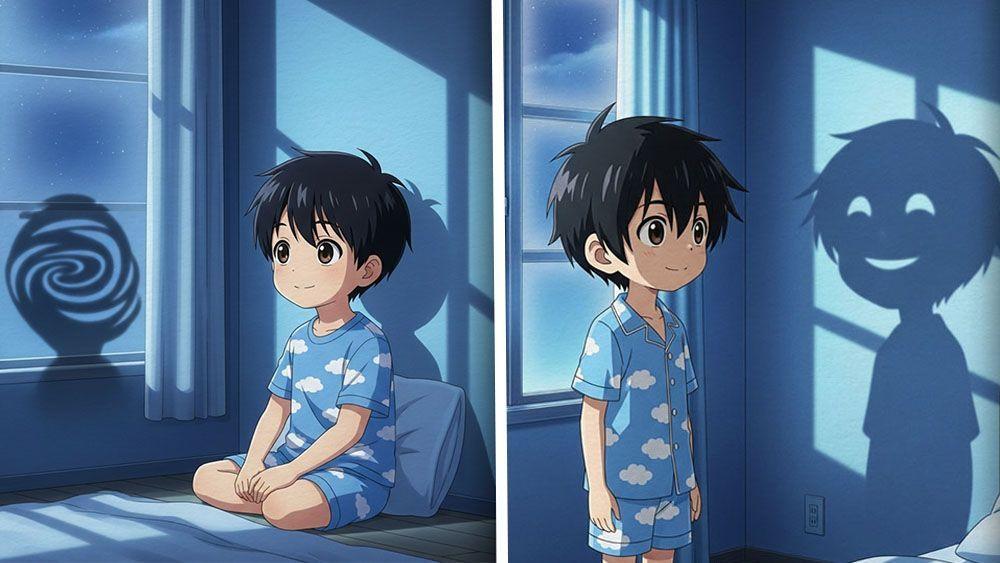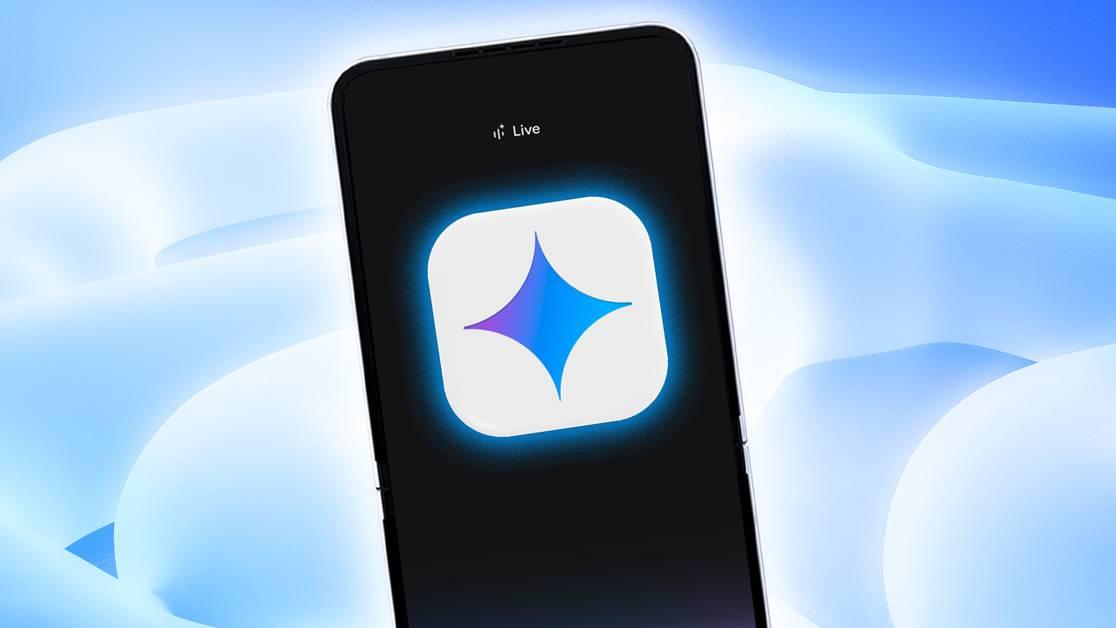Google's Gemini AI Launches Storybook Feature: A New Frontier in Children's Literature or a Cause for Concern?
2 Sources
2 Sources
[1]
Gemini AI can turn prompts into picture books, but I still prefer Paddington
The results can be cute but are far from the quality of beloved classics If you have a kid who loves to hear about themselves in a story, Google's Gemini AI has a new trick that could keep them happy for a long time. Gemini's new Storybook feature lets you generate fully illustrated, ten-page storybooks with narration from a single prompt. You describe the tale, the look you want, and any other details, and Gemini writes the story, creates images for each page, and reads it aloud within a few minutes. Storybook, in some ways, just combines existing abilities like text composition, image generation, and voice narration. Still, by putting them into a single prompt system, it speeds up the final product enormously. If you don't like certain details of the look or writing, you can simply adjust the book with follow-up prompts. You can even feed it a photo to shape the setting or characters. The appeal for those who might feel they lack creative writing or drawing skills is obvious. No need to hire an illustrator or record voiceovers yourself. If your child wants a bedtime story about a shy dragon who finds confidence at music camp, you type that in, and within minutes, you've got a book with pictures, narration, and page-by-page structure. This isn't just for bedtime, either. Teachers can create customized stories to explain hard topics, perhaps teaching second graders about gravity with a friendly astronaut cat. Therapists could use storybooks to help kids talk through emotions using characters they connect with. Aunts and uncles can make personalized birthday stories with inside jokes and family pets. What used to be a labor-intensive creative project is now something you can do on your phone during lunch break. And it is a notable shift from the standard template with a blank to fill in approach common to other AI tools. The narration even adapts to the tone of the story, with voices that can be whimsical, soothing, or dramatic, depending on what your story needs. Google is pitching the tool to busy parents, overworked teachers, and creative kids looking for a co-author and illustrator for their ideas. I asked Gemini to make a story about my dogs going on an adventure in nature, sharing their names and describing their looks, and that's about it. You can read and listen to the Gemini-created story here. It did a remarkably good job, albeit with a very inconsistent look to the dogs from page to page and a somewhat dull story. And when I tried it again to see how it would perform with the same prompt, the dogs sometimes had more than four limbs, not exactly reassuring to a child looking forward to a story about their pets. And while it's theoretically possible that Gemini could write and illustrate a story better than the many classic and modern children's books out there, or one more personally resonant than writing it yourself, I personally have doubts. This is a fun little trick, but the idea of skipping every bookstore, library, and box of crayons and pencils for an AI alternative that can't always even make your dog look the same on every page feels like the exact activity I'd rather do myself. I'll stick to asking AI for help organizing my kitchen and leave the bedtime stories to me.
[2]
Why I wouldn't subject my child to Google's AI storybooks
Another day, another creative AI tool to save us time and effort and protect us from the ordeal of having to interact with children. Google's latest trick is a children's storybook generator that the tech giant hopes will help parents get their kids off to sleep at night. You give Gemini a text prompt, and it will create a 10-page storybook complete with art. But will the combination of AI-generated text and images provide sweet dreams or lead us to a dystopian nightmare? I had to try it out. The Gemini AI Storybook tool launched today within Google's AI bot for desktop and mobile. You can type in an idea for a story, requesting a specific art style if desired. There's also the option to upload your own images or documents as references. In a few seconds, Gemini will generate the storybook, and it can even read it aloud so parents don't have to. According to Google, the advantage of the experiment, other than providing a potentially endless supply of bedtime stories in over 45 language for free, is personalisation. You can generate stories about things that have happened during the day to reinforce personal memories or lessons. Examples suggested by Google include generating a story to reassure a child who's scared to stay at his grandma's house. I tested it out with three requests: a story about a friendly tree ghost to calm a kid who was scared of a shadow, a story to teach kids that bees are beneficial and a story that teaches that rare yellow cardinals shouldn't be kept as pets. In each case, Gemini did manage to generate a story that made some sense and adhered to the prompt with approximately the art style I asked for. On the downside, the stories were fairly flat and soulless. The characters often feel impersonal ("The woman explained to a little boy who was with her" - who is this woman, and who is this random boy who's with her?). And the language is formulaic, with an annoyingly repetitive use of adjectives and trite similies. More problematic were the inconsistencies in the imagery generated. Characters sometimes look totally different from one scene to the next, don't coincide with the text, or simply disappear. The boy in my ghost story randomly went missing from his bed in one scene. In another, it appeared that the ghost was now his own shadow rather than the tree's shadow. In Google's own video to promote the new feature, a woman appears to be using a wrench as a hammer (see the video below 18 seconds in). I thought it might be nice if you could use it to upload a drawing and generate a storybook based on the same style. That could be fund for turning kids' pictures into stories, but look at what it did to my sketch of Oliver the South American great horned owl! Very much a downgrade, I'm sure you'll agree. Perhaps the biggest problem with its AI Storybooks is Google's understanding of the whole point of bedtime reading, which it seems to see as 1) a chore that needs to be dealt with as quickly as possible, b) something that needs to customised to each child with the sole purpose of teaching life lessons. Part of the fun of bedtime reading for kids is discovering books with unexpected stories or art styles that capture the imagination. When that happens, kids want to see and hear them again and again. Such stories are universal and can gain sentimental value despite having not been custom-made for a single child in mind. That allows the stories to be shared, to become part of the collective consciousness and to teach kids that the world doesn't completely revolve around them. Should we really be customising kids' entertainment to make them the centre of every story they read or watch? Like with other AI products like Showrunner, the supposed 'Netflix of AI', it seems we're heading towards an atomised culture devoid of shared experiences. The fact that Gemini can read the book for you suggests the aim is to allow parents type in a prompt, hand the iPad over and leave kids to it, but would you risk giving a kid an AI-generated story when you don't know what hallucination the model might come up with? Let me know what you think.
Share
Share
Copy Link
Google's Gemini AI introduces a new Storybook feature that can generate personalized, illustrated children's books from prompts, sparking debate about its implications for creativity, parenting, and childhood development.
Google Unveils Gemini AI's Storybook Feature
Google has introduced a new Storybook feature for its Gemini AI, capable of generating personalized, illustrated children's books from simple prompts. This innovative tool combines text composition, image generation, and voice narration to create 10-page storybooks within minutes
1
.
Source: TechRadar
How Gemini's Storybook Works
Users can input a story idea, specify art styles, and even upload reference images. Gemini then crafts a complete storybook, including illustrations and narration. The AI adapts its voice to match the story's tone, whether whimsical, soothing, or dramatic
1
.Potential Applications
Google suggests various uses for the Storybook feature:
- Personalized bedtime stories
- Educational tools for teachers
- Therapeutic aids for children
- Custom birthday stories from relatives
The tool is available in over 45 languages, making it accessible to a global audience
2
.Related Stories
Limitations and Concerns
Despite its capabilities, the Storybook feature has notable drawbacks:
- Inconsistent illustrations: Characters may change appearance or disappear between pages
2
.

Source: Creative Bloq
- Generic storytelling: Critics argue that the generated stories lack depth and personality
2
. - Potential for errors: AI-generated content may include mistakes or inappropriate elements
1
.
The Debate: AI vs. Traditional Storytelling
The introduction of AI-generated storybooks has sparked a debate about the role of technology in childhood development and creativity:
-
Efficiency vs. Quality: While Gemini can produce stories quickly, some argue that the quality doesn't match that of classic children's literature
1
. -
Personalization vs. Shared Experiences: Critics worry that highly personalized stories may limit children's exposure to diverse narratives and shared cultural experiences
2
. -
Convenience vs. Parent-Child Interaction: While the tool offers convenience, some fear it may reduce valuable bonding time between parents and children during storytelling
2
.
As AI continues to evolve in the realm of creative content generation, the Gemini Storybook feature represents a significant step in the intersection of technology and children's literature. However, its long-term impact on childhood development, creativity, and family dynamics remains to be seen.
References
Summarized by
Navi
[2]
Related Stories
Recent Highlights
1
ByteDance's Seedance 2.0 AI video generator triggers copyright infringement battle with Hollywood
Policy and Regulation

2
Microsoft AI chief predicts artificial intelligence will automate most white-collar jobs in 18 months
Business and Economy

3
Anthropic and Pentagon clash over AI safeguards as $200 million contract hangs in balance
Policy and Regulation








